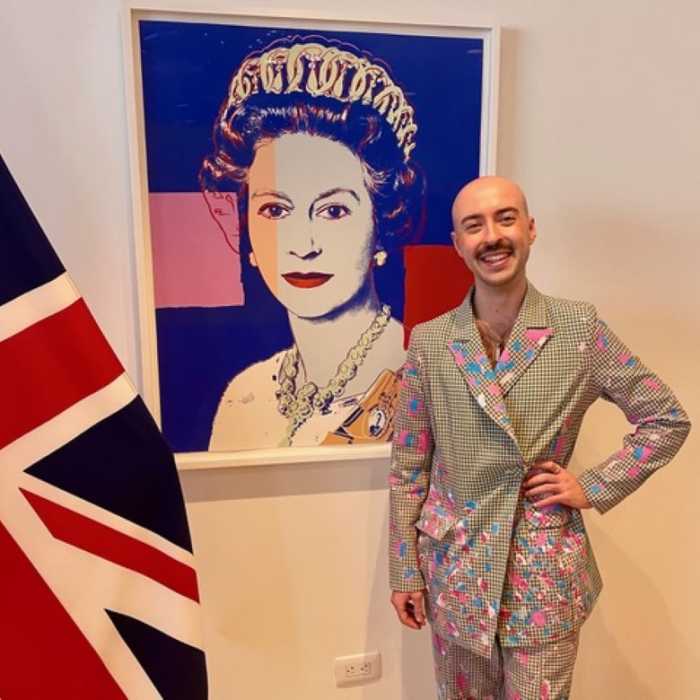Haywood, the most memorable character in “The Scottsboro Boys,” is played with passionate defiance by Joshua Henry. | PAUL KOLNIK
Trashy white girls accusing young black men of rape. Songs about electric chairs and “dirty Jew money.” Black actors doing minstrel in blackface.
Not exactly the stuff of your standard Broadway show targeting tourists craving a feel-good diversion. Or, for that matter, one that hopes to recoup its investment.
But escapist entertainment was not what legendary songmeisters John Kander and Fred Ebb (who died in 2004 before the score was completed) had in mind when they collaborated with book writer David Thompson on “The Scottsboro Boys,” which recently transferred from the Public to the Lyceum Theatre on Broadway.
What they were after was truth — and perhaps a belated dose of justice — by reliving a dark, fetid chapter in American history that helped jump-start the civil rights movement.
During the depths of the Great Depression, nine “Negro boys” aged 13 to 19 were wrongly accused of raping two white women while on a train trip through Alabama in search of work. Within days, a kangaroo court found the innocents guilty, bringing them face-to-face with the electric chair.
News of the spurious verdict enraged groups in the North, sparking protests in more than 100 cities (10,000 rallied in New York’s Union Square alone). A ludicrous series of appeals, retrials, mistrials, and plea-bargains followed over the next several years. Everyone knew it was nothing more than a circus of injustice.
Embracing the patent absurdity, “The Scottsboro Boys” creators ingeniously framed the story as a warped minstrel show, accompanied by sinister tambourines, where the song-and-dance antics of whites strong-arming blacks play out as a wicked cartoon. Employing this fanciful conceit, the sting is blunted somewhat, though by no means eliminated. For much of the evening, I found myself squirming in my seat.
The evening’s showiest roles belong to the manic, double-jointed Colman Domingo and Forrest McClendon. | PAUL KOLNIK
With such a large ensemble and complex narrative structure, it is impossible for any character to be fully fleshed out, yet a few break through. The most memorable is Haywood (played with passionate defiance by Joshua Henry, fresh from “American Idiot”), who learns to read and write while behind bars and discovers that scrawling his first letter to his mother is a victory almost as sweet as exoneration itself. When faced with copping a guilty plea in exchange for parole, he must “lie or die.”
The youngest member of the company, Jeremy Gumbs, plays 13-year old Eugene with a tender sincerity and ably keeps pace with his cast-mates. Poor Eugene doesn’t even know what rape is, accentuating the lunacy of the charges. He just wants to go home.
The showiest roles belong to the manic, double-jointed Colman Domingo (“Passing Strange”) and Forrest McClendon. As African-American actors portraying black men portraying buffoonish white racist authority figures (sheriffs, lawyers, guards) in their minstrel show, they redefine histrionics as a virtue onstage. “When I want your opinion, I’ll give it to you,” one of the faux racists barks at the boys when they dare to defend themselves.
These clowns can turn violent in a flash. When one boy gets too uppity, the Sheriff throws him to the ground and jabs his star-shaped badge into the boy’s neck. That’s how justice works in Alabama.
If you searched “slimy Southern white racist” on Google Image, you’d half expect John Cullum’s mug to pop up. In his multiple roles as Judge, Governor, and minstrel show emcee, he embodies the hate and fear toward minorities that gripped much of the South during the first half of the 20th century. His evil is only vaguely masked by a creepy grin.
The no-nonsense set, by Beowulf Bowitt, is little more than a few metal chairs and wooden planks, constantly reconfigured to suggest a boxcar, courtroom, jail cell, and, of course, a minstrel stage.
Any Kander and Ebb fan will instantly notice more than a few echoes of the monster hit “Chicago,” with all the frantic finger-pointing, corrupt authorities, and cynical, carnivalesque trial scenes. There are many moments where the satirical “Scottboro Boys” lives up to the pointed dazzle of “Chicago.” The ragtime-inflected musical numbers are thrilling, driven by the inventive choreography by Susan Stroman, who also directed.
“Chicago,” with its relatively comfy subject matter — a couple of jealousy-fueled murders hardly compares to the oppression of an entire race — has been running for 14 years and is still going gangbusters. In contrast, by focusing on a grim moment in history most Americans would rather forget, I’d be surprised if “The Scottsboro Boys,” despite being one of the most accomplished, savagely witty shows now on the boards, were around come Tony Award time next spring. I hope I’m proven wrong.
THE SCOTTSBORO BOYS | Lyceum Theatre | 149 West 45th St. | Tue.-Sun. at 8 p.m.; Sat., Sun. at 3 p.m. | $39.50-$131.50; Telecharge.com or 212-239-6200



































